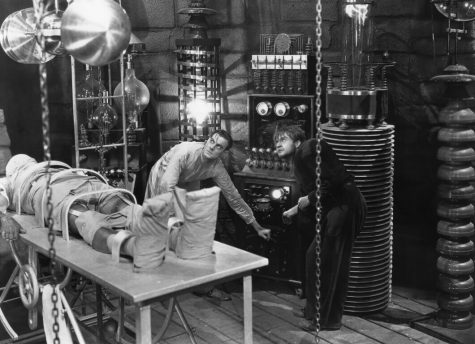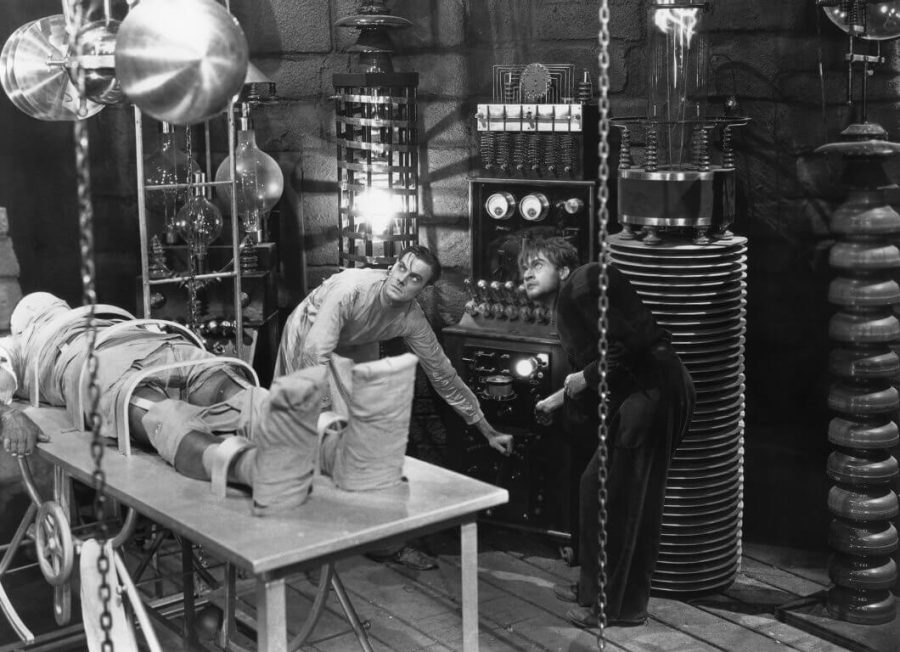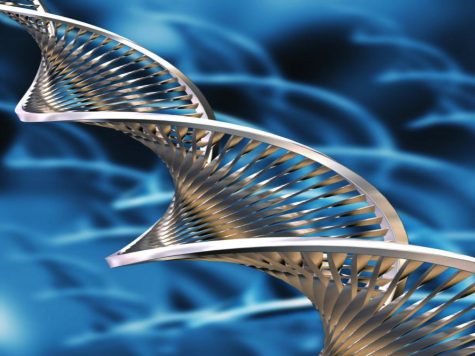The Morality of Gene Editing with Relation to Frankenstein

Frankenstein, by Mary Shelley, tackles many prominent, relevant topics that we can see displayed today in society. There are topics such as Wretch’s morality and development to understand humanity, which reflects an average human’s life who yearns to fit in and live their life. The tribulations and struggle with integrity after being so curious to bring a destructive monster to life through genetic engineering, tie in with humanity’s overwhelming curiosity to push the boundaries of nature. The most important topic that was discovered within this novel was the morality that goes along with creating something unnaturally. To elaborate, there are species of animals including humans that have reproduced and evolved in a specific continuous way. It begs the question of what are the moral implications of going off the course that life has given man, more specifically, the ethics behind genetic engineering and the development of gene editing. As humanity advances through the 21st Century, science begins to uncover the opportunities that come with genetic engineering. There are positive and negative aspects of genetic engineering which are affected by religious and ethical concerns, possible effects on health, and effects on the ecosystem and the environment.
Advancements in genetic engineering come with questions about the ethics of creating an organism to their liking. It’s like the organism is cheating the natural process of life; not following the course that was planned out for them and besmirching the natural process of evolution and natural selection. There are also religious concerns with gene therapy. When the Wretch explained to Frankenstein about his journey, he says, “God, in pity, made man beautiful and alluring, after his image; but my form is a filthy type of yours.” (154) Even the Wretch, a creature that was created separately than the way man is created recognizes that man was created by God and is a reflection of his image which means that in the people’s eyes, not following God’s plan, they are a “filthy type of yours”. Studies have shown that present-day religions have strong feelings and opinions about gene therapy. According to a study conducted by AgBiotechNet, the majority of religions oppose the science involved with gene therapy, but there is also a large percentage that believes in the power of new technology involving gene editing. Their reasoning has to do with specific beliefs that changing what their respective gods created was unjust and wrong, and would be frowned upon by the higher powers. Many people also believe that it’s unjust because, in humans, people will look similar and others won’t be able to develop or appear a certain way compared to those who can afford genetic engineering. Due to the recency of the discovery of the uses of genetic engineering, the idea of receiving the treatment is borderline unimaginable for the majority of people with the price being upwards of thousands of dollars. When humanity tries to push the limits of what humans can do, it puts our ethics in question. The question arises about whether it is our place to change what the world has given us for our benefit.
Another main reason that adds to the controversy of gene therapy is the possible effect on a human’s or an animal’s life. Scientists have conducted lots of research and experimentation and they have come to intriguing results: some good, some bad. According to the Center for Food Safety, genetically engineered organisms can be toxic, and induce allergic reactions and antibiotic resistance. Variables in genetically engineered foods create symptoms that are related to changes in hematological, biochemical, and immunologic parameters, although there can be good results from genetically modifying crops, in specific. Farmers can infuse genes from other crops that have advantages in production such as growing faster, taller, and increasing in volume. The food industry has been able to feed more people more efficiently and science is pushing the boundaries of nature for more sustainable sources of food.
GMOs (Genetically Modified Organisms) also reduce the probability of disease, which makes the crops stronger, healthier, and more productive. GMOs are a controversial topic, a controversy that is mostly based on the possible effects on a human’s or animal’s health.
Genetically modified organisms present environmental and biological implications. Scientists have been asking themselves these questions and have concluded that there will be many major consequences to the environment. One positive effect is that GMOs have a trait that keeps the released carbon dioxide in the soil reducing greenhouse gas. The gas is released into the environment through carbon dioxide emissions. More efficient food means less waste; there are fewer and fewer crops that are wasted because they can’t meet the needs of the grower or producer. GMOs also usually require fewer pesticides and less water to grow, meaning that fewer resources are used to sustain and maintain the crops. Within a new discovery, there come benefits and drawbacks. Genetically engineered organisms in nature will alter the structure of the ecosystem and are alien from the natural structure of the food web. The species can spread and eventually be an unnatural invasive species that can push out native species and shake up the balance of nature. Implications of genetically modified organisms raise suspicion within the scientific community regarding the safety and potential harm to the environment.
These are real-world dilemmas that are important today and it’s pretty impressive how Mary Shelley was able to incorporate these modern ideas at such a young age. There are positive and negative aspects of genetic engineering which are affected by religious and ethical concerns, possible effects on health, and effects on the ecosystem and the environment. Frankenstein is a novel that reflects lots of modern dilemmas that have to do with changes in morality; such as the morality of bringing an organism to life through genetic engineering and the implications for the creator and society as a whole. This can be reflected in the dilemma that humankind has regarding the ethics of genetic modification. As humanity ventures towards the future, the question of whether genetic engineering is the next step arises. Is this the future or does the next step reside elsewhere?
Works Cited
Chamberlin, Morgan. “The Environmental Impact of Genetically Modified Crops – Health & Human Development.” Montana State University, https://www.montana.edu/hhd/graduate/dietetics/blog_posts/GMO_environment.html. Accessed 11 April 2022.
Eaves, Audrey. “Genetic Engineering and Ethics: Are We Ready? | The Voice.” Eastern Oregon University, 27 October 2021, https://www.eou.edu/voice/2021/10/27/genetic-engineering-and-ethics-are-we-ready/. Accessed 11 April 2022.
“GE Food & Your Health | | GE Food & Your Health.” Center for Food Safety, Center for Food Safety, https://www.centerforfoodsafety.org/issues/311/ge-foods/ge-food-and-your-health. Accessed 11 April 2022.
Reis, Maura Santos, and Andrade Da Silva. “Application of Gene Editing for Climate Change in Agriculture.” Frontiers, 7 September 2021, https://www.frontiersin.org/articles/10.3389/fsufs.2021.685801/full. Accessed 11 April 2022.
Reis, Maura Santos, and Andrade Da Silva. “Application of Gene Editing for Climate Change in Agriculture.” Frontiers, 7 September 2021, https://www.frontiersin.org/articles/10.3389/fsufs.2021.685801/full. Accessed 11 April 2022.
“Religious Beliefs Influence Views on Genetic Engineering.” CABI.org, AgBiotechNet, https://www.cabi.org/agbiotechnet/news/523. Accessed 11 April 2022.
“What are genome editing and CRISPR-Cas9?” MedlinePlus, 22 March 2022, https://medlineplus.gov/genetics/understanding/genomicresearch/genomeediting/. Accessed 11 April 2022.
“What are the Ethical Concerns of Genome Editing?” National Human Genome Research Institute, 3 August 2017, https://www.genome.gov/about-genomics/policy-issues/Genome-Editing/ethical-concerns. Accessed 11 April 2022.



